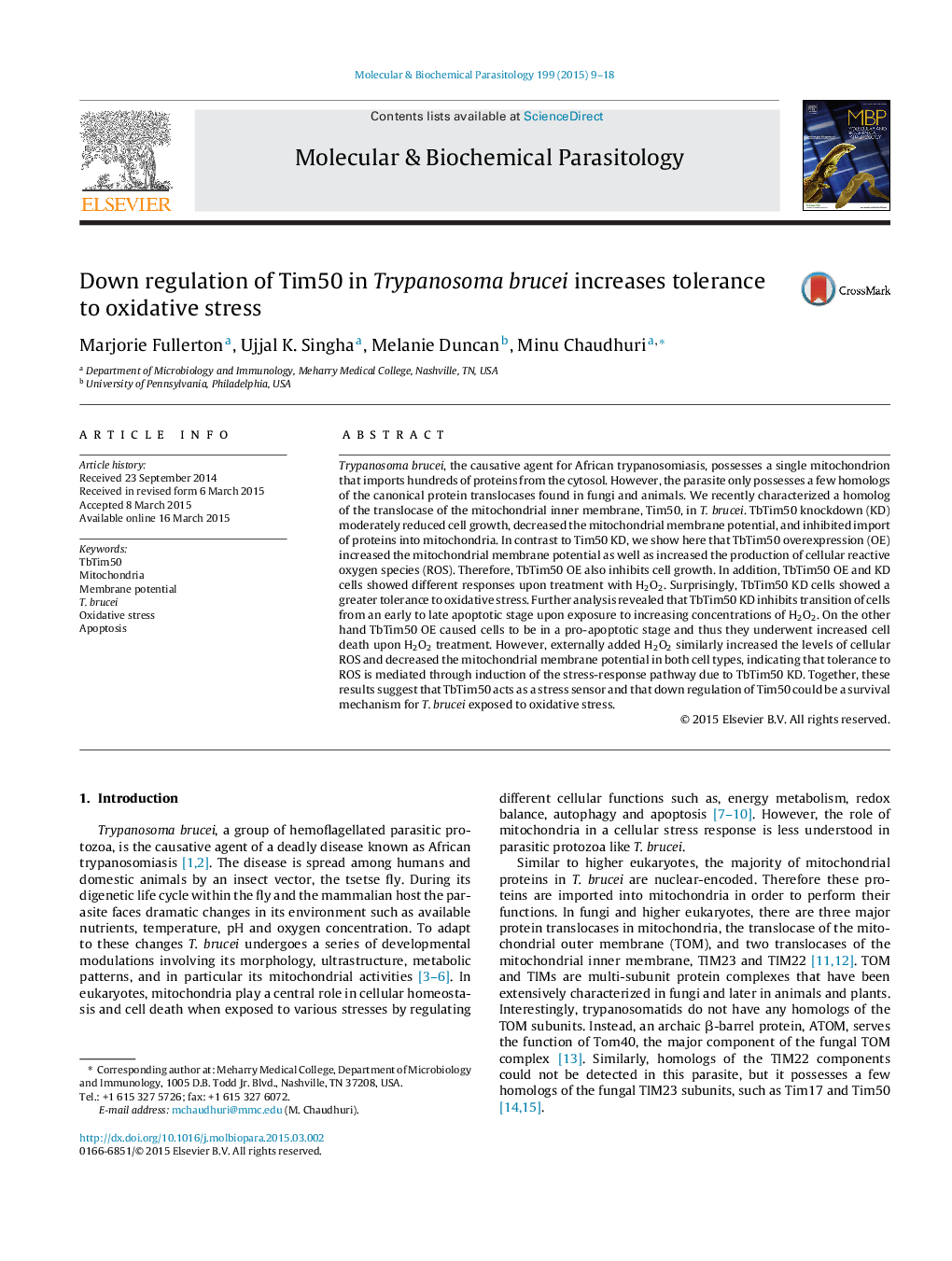| کد مقاله | کد نشریه | سال انتشار | مقاله انگلیسی | نسخه تمام متن |
|---|---|---|---|---|
| 5915374 | 1570649 | 2015 | 10 صفحه PDF | دانلود رایگان |

- Tim50 acts as a stress-sensor.
- Tim50 OE increases ROS and the mitochondrial membrane potential.
- Tim50 KD inhibits transition of cells from an early to late apoptotic stage.
- Tim50 KD increases T. brucei's tolerance to oxidative stress.
- Tim50 KD could be a survival mechanism for T. brucei exposed to oxidative stress.
Trypanosoma brucei, the causative agent for African trypanosomiasis, possesses a single mitochondrion that imports hundreds of proteins from the cytosol. However, the parasite only possesses a few homologs of the canonical protein translocases found in fungi and animals. We recently characterized a homolog of the translocase of the mitochondrial inner membrane, Tim50, in T. brucei. TbTim50 knockdown (KD) moderately reduced cell growth, decreased the mitochondrial membrane potential, and inhibited import of proteins into mitochondria. In contrast to Tim50 KD, we show here that TbTim50 overexpression (OE) increased the mitochondrial membrane potential as well as increased the production of cellular reactive oxygen species (ROS). Therefore, TbTim50 OE also inhibits cell growth. In addition, TbTim50 OE and KD cells showed different responses upon treatment with H2O2. Surprisingly, TbTim50 KD cells showed a greater tolerance to oxidative stress. Further analysis revealed that TbTim50 KD inhibits transition of cells from an early to late apoptotic stage upon exposure to increasing concentrations of H2O2. On the other hand TbTim50 OE caused cells to be in a pro-apoptotic stage and thus they underwent increased cell death upon H2O2 treatment. However, externally added H2O2 similarly increased the levels of cellular ROS and decreased the mitochondrial membrane potential in both cell types, indicating that tolerance to ROS is mediated through induction of the stress-response pathway due to TbTim50 KD. Together, these results suggest that TbTim50 acts as a stress sensor and that down regulation of Tim50 could be a survival mechanism for T. brucei exposed to oxidative stress.
240
Journal: Molecular and Biochemical Parasitology - Volume 199, Issues 1â2, JanuaryâFebruary 2015, Pages 9-18